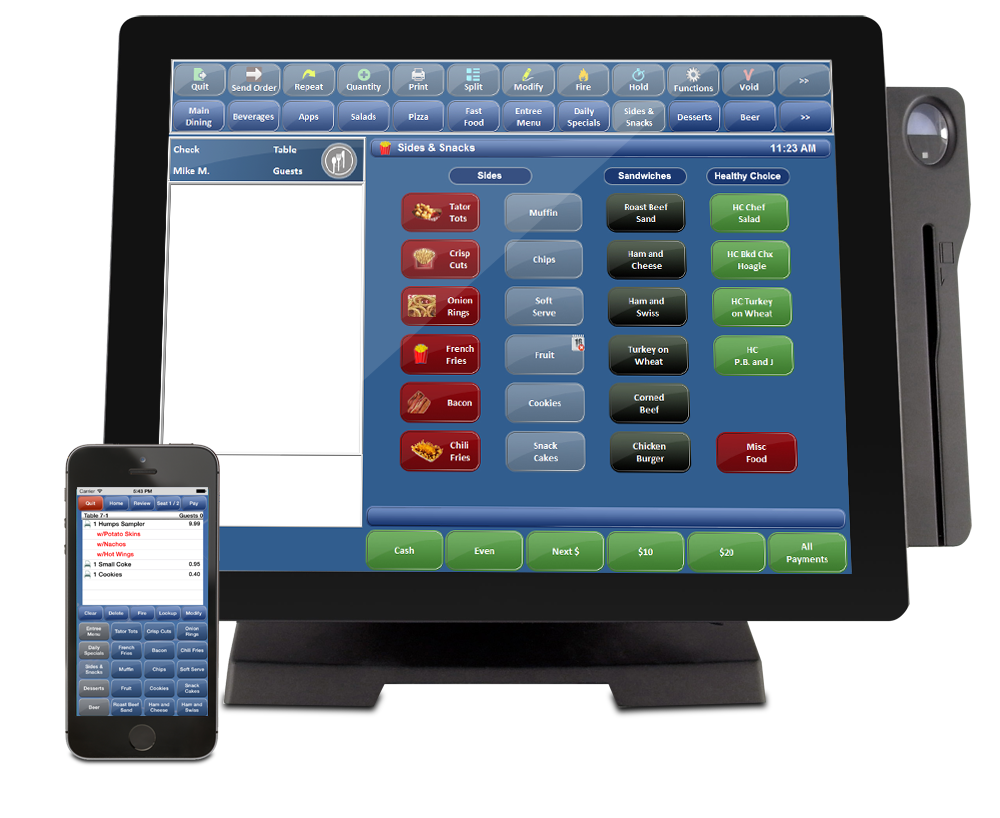Point of Sale Systems Demystified: Key Information You Should to Be Aware Of

Within the current fast-paced retail and hospitality industries, grasping the role of a Point of Sale (POS) system is vital for every business manager. A modern POS system is much more than a device that processes transactions; it serves as the central hub for managing various elements of a business, from inventory to client interactions. As tech advances, POS systems have evolved from simple cash counters into sophisticated cloud-based platforms that can greatly enhance operational effectiveness and user satisfaction.
For those unfamiliar to the concept or seeking to improve, navigating the myriad options out there can be overwhelming. This detailed guide aims to demystify POS solutions, exploring their development, characteristics, and advantages. Whether own a restaurant, a retail outlet, or a small business, understanding how to select the right system, integrate with other software, and ensure safety will empower you to make informed decisions that propel your business ahead. Join us as we delve into the essential elements of POS solutions and how they can transform your business processes.
Understanding Point of Sale Solutions
A POS system is a combination of hardware and programs that enables businesses to finalize sales deals efficiently. Traditionally, this meant handling cash registers, but modern POS systems now include a wide range of functionalities that assist with inventory management, customer relationship management, and sales reporting. Understanding what a POS system consists of is essential for businesses looking to improve their operations and improve customer service.
As technology has evolved, POS systems have evolved from traditional cash registers to advanced, cloud-based systems. This transformation has enabled businesses to access real-time data from any location, facilitating better decision-making and better customer interactions. With the introduction of mobile POS systems, businesses can also enable transactions on-the-go, integrating convenience into their service offerings. This versatility is particularly advantageous in fast-paced environments such as restaurants and retail stores, where customer preferences can shift rapidly.
The increasing importance of security in financial transactions cannot be emphasized enough. Modern POS systems are built with advanced security features to protect sensitive customer data and ensure adherence with industry regulations. From EMV chip technology that reduces fraud risk to frequent software updates that safeguard against cyber threats, it is crucial for businesses to choose a POS system that emphasizes security. By understanding these elements, businesses can make informed decisions and adopt systems that not only streamline operations but also build trust with their customers.
Selecting the Best POS Solution

Picking the best POS solution is essential for the prosperity of your enterprise. Initially, you need to examine your specific needs based on the nature of your business model, whether it's retail. Think about factors such as the amount of transactions, customer flow, and categories of products or services you offer. A solution that aligns with your business requirements can simplify processes, enhance efficiency, and eventually improve customer contentment.
Then, assess the capabilities and options that are most important for your business. Seek out systems that include vital capabilities such as inventory tracking, performance reporting, and CRM integration. Additionally, verify that the system accepts multiple payment methods, including digital payments, to meet customer needs. As tech evolves, read what he said that are not only intuitive but also flexible, enabling your enterprise to grow without needing a complete redesign of your POS solution.
Lastly, consider the assistance and training offered by the POS provider. An effective POS system is one that comes with thorough customer support and training resources to help your team manage it well. Research user reviews and inquire potential providers about their assistance offerings. An established vendor with a history of good service can make a meaningful difference in how smoothly your solution operates and how swiftly your employees becomes adept in operating it.
Safety and Maintenance
Securing the safety of your POS system is vital for safeguarding confidential customer data and maintaining your business reputation. Cyber risks are constantly evolving, and companies must be diligent in safeguarding their infrastructure. This comprises deploying robust security measures such as full encryption, data tokenization, and multi-factor authentication . Regularly refreshing your software to resolve vulnerabilities and using security barriers can go a long way in ensuring your information secure.
Maintenance of your POS system is equally important to ensure peak performance. Routine inspections should include verifying hardware functionality, refreshing software, and safeguarding data to prevent loss in case of breakdown. A well-maintained POS system not only operates smoothly but also minimizes downtime, which can disrupt service and affect customer satisfaction. You might want to scheduling regular maintenance checks and keeping a list of essential tasks to ensure your platform remains in optimal condition.
Training your staff on safety best practices is a key aspect of maintaining your POS system. Employees should be cognizant of potential security risks, such as scams or insider threats, and know how to react appropriately. Providing ongoing training and resources can empower your team to defend the platform proactively. Additionally, having a clear strategy in place for addressing security breaches, including communication protocols and response strategies, will ensure that your company is prepared to handle any problems that may arise.
